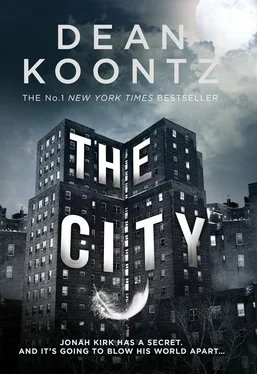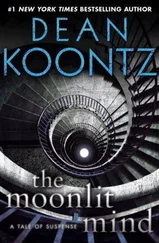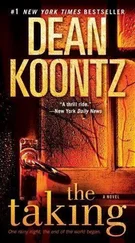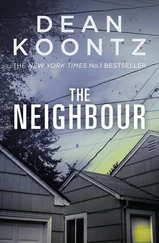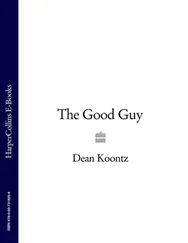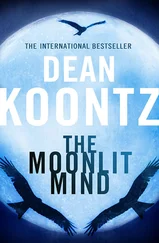But I’m getting ahead of myself. I tend to do that. Any life isn’t just one story; it’s thousands of them. So when I try to tell one of my own, I sometimes go down an alleyway when I should take the main street, or if the story is fourteen blocks long, I sometimes start on block four and have to backtrack to make sense.
Also, I’m not tapping this out on a keyboard, and I tend to ramble when I talk, like now into this recorder. My friend Malcolm says not to call it rambling, to call it oral history. That sounds pretentious, as though I’m as certain as certain can be that I’ve achieved things that ensure I’ll go down in history. Nevertheless, maybe that’s the best term. Oral history. As long as you understand it just means I’m sitting here shooting off my mouth. When someone types it out from the tapes, then I’ll edit to spare the reader all the you-knows and uhs and dead-end sentences, also to make myself sound smarter than I really am. Anyway, I must talk instead of type, because I have the start of arthritis in my fingers, nothing serious yet, but since I’m a piano man and nothing else, I have to save my knuckles for music.
Malcolm says I must be a closet pessimist, the way I so often say, “Nothing serious yet.” If I feel a phantom pain in one leg or the other and Malcolm asks why I keep massaging my calf, I’ll say, “Just this weird thing, nothing serious yet.” He thinks I’m convinced it’s a deep-vein blood clot that’ll break loose and blow out my lungs or brain later in the day, though that never crossed my mind. I just say those three words to reassure my friends, those people I worry about when they have the flu or a dizzy spell or a pain in the calf, because I’d feel relieved if they reassured me by saying, “Nothing serious yet.”
The last thing I am is a closet pessimist. I’m an optimist and always have been. Life’s given me no reason to expect the worst. As long as I’ve loved the city, which is as long as I can remember, I have been an optimist.
I was already an optimist when all this happened that I’m telling you about. Although I’ll reverse myself now and then to give you some background, this particular story really starts rolling in 1967, when I was ten, the year the woman said she was the city. By June of that year, I had moved with my mom into Grandpa’s house. My mother, whose name was Sylvia, was a singer. Grandpa’s name was Teddy Bledsoe, never just Ted, rarely Theodore. Grandpa Teddy was a piano man, my inspiration.
The house was a good place, with four rooms downstairs and four up, one and three-quarter baths. The piano stood in the big front room, and Grandpa played it every day, even though he performed four nights a week at the hotel and did background music three afternoons at the department store, in their fanciest couture department, where a dress might cost as much as he earned in a month at both jobs and a fur coat might be priced as much as a new Chevy. He said he always took pleasure in playing, but when he played at home, it was only for pleasure.
“If you’re going to keep the music in you, Jonah, you’ve got to play a little bit every day purely for pleasure. Otherwise, you’ll lose the joy of it, and if you lose the joy, you won’t sound good to those who know piano—or to yourself.”
Outside, behind the house, a concrete patio bordered a small yard, and in the front, a porch overlooked a smaller yard, where this enormous maple tree turned as red as fire in the autumn. And when the leaves fell, they were like enormous glowing embers on the grass. You might say it was a lower-middle-class neighborhood, I guess, although I never thought in such terms back then and still don’t. Grandpa Teddy didn’t believe in categorizing, in labeling, in dividing people with words, and neither do I.
The world was changing in 1967, though of course it always does. Once the neighborhood was Jewish, and then it went Polish Catholic. Mr. and Mrs. Stein, who had moved from the house but still owned it, rented to my grandparents in 1963, when I was six, and sold it to them two years later. They were the first black people to live in that neighborhood. He said there were problems at the start, of the kind you might expect, but it never got so bad they wanted to move.
Grandpa attributed their staying power to three things. First, they kept to themselves unless invited. Second, he played piano free for some events at Saint Stanislaus Hall, next to the church where many in the neighborhood attended Mass. Third, my grandma, Anita, was secretary to Monsignor McCarthy.
Grandpa was modest, but I won’t be modest on his behalf. He and Grandma didn’t have much trouble also because they had about them an air of royalty. She was tall, and he was taller, and they carried themselves with quiet pride. I used to like to watch them, how they walked, how they moved with such grace, how he helped her into her coat and opened doors for her and how she always thanked him. They dressed well, too. Even at home, Grandpa wore suit pants and a white shirt and suspenders, and when he played the piano or sat down for dinner, he always wore a tie. When I was with them, they were as warm and amusing and loving as any grandparents ever, but I was at all times aware, with each of them, that I was in a Presence.
In April 1967, my grandma fell dead at work from a cerebral embolism. She was just fifty-two. She was so vibrant, I never imagined that she could die. I don’t think anyone else did, either. When she passed away suddenly, those who knew her were grief-stricken but also shocked. They harbored unexpressed anxiety, as if the sun had risen in the west and set in the east, suggesting a potential apocalypse if anyone dared to make reference to that development, as if the world would go on safely turning only if everyone conspired not to remark upon its revolutionary change.
At the time, my mom and I were living in an apartment downtown, a fourth-floor walk-up with two street-facing windows in the living room; in the kitchen and my little bedroom, there were views only of the sooty brick wall of the adjacent building, crowding close. She had a gig singing three nights a week in a blues club and worked the lunch counter at Woolworth’s five days, waiting for her big break. I was almost ten and not without some street smarts, but I must admit that for a time, I thought that she would be equally happy if things broke either way—a gig singing in bigger and better joints or a job as a waitress in a high-end steakhouse, whichever came first.
We went to stay with Grandpa for the funeral and a few days after, so he wouldn’t be alone. Until then, I’d never seen him cry. He took off work for a week, and he kept mostly to his bedroom. But I sometimes found him sitting in the window seat at the end of the second-floor hallway, just staring out at the street, or in his armchair in the living room, an unread newspaper folded on the lamp table beside him.
When I tried to talk to him, he would lift me into his lap and say, “Let’s just be quiet now, Jonah. We’ll have years to talk over everything.”
I was small for my age and thin, and he was a big man, but I felt greatly gentled in those moments. The quiet was different from other silences, deep and sweet and peaceful even if sad. A few times, with my head resting against his broad chest, listening to his heart, I fell asleep, though I was past the age for regular naps.
He wept that week only when he played the piano in the front room. He didn’t make any sounds in his weeping; I guess he was too dignified for sobbing, but the tears started with the first notes and kept coming as long as he played, whether ten minutes or an hour.
While I’m still giving you background here, I should tell you about his musicianship. He played with good taste and distinction, and he had a tremendous left hand, the best I’ve ever heard. In the hotel where he worked, there were two dining rooms. One was French and formal and featured a harpist, and the décor either made you feel elegant or made you ill. The second was an Art Deco jewel in shades of blue and silver with lots of glossy-black granite and black lacquer, more of a supper club, where the food was solidly American. Grandpa played the Deco room, providing background piano between seven and nine o’clock, mostly American-standard ballads and some friskier Cole Porter numbers; between nine and midnight, three sidemen joined him, and the combo pumped it up to dance music from the 1930s and ’40s. Grandpa Teddy sure could swing the keyboard.
Читать дальше
